The world is filled with many enthralling historical sites, but few are as impressive – or as grand – like Machu Picchu in Peru, and Chichen Itza in Mexico. At a glance, both archaeological sites might seem to offer a similar experience. However, they are both vastly different. Machu Picchu is easily
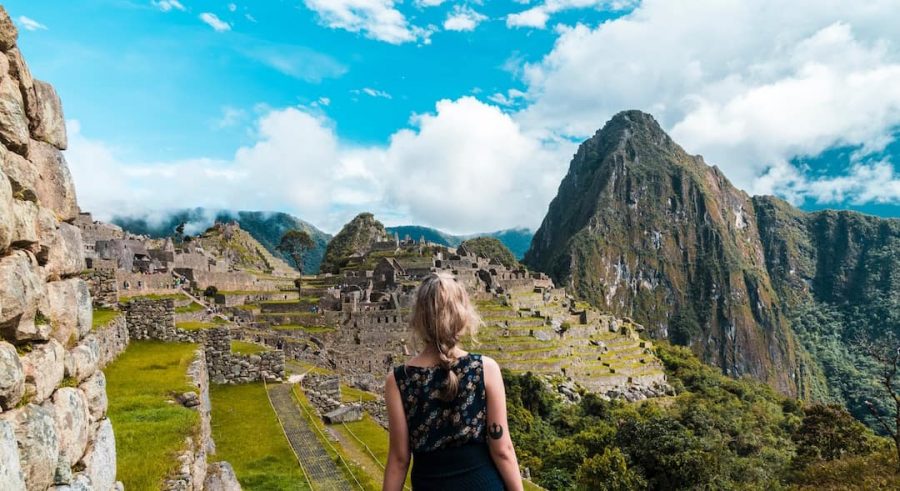
Machu Picchu vs. Chichen Itza
| Location | Peru | Mexico |
| Area | 325.9 km² | 10 km² |
| Cultures | Incan Civilisation | Maya Civilisation |
| Coordinates | 13°09′48″S 72°32′44″W | 20°40′59″N 88°34′7″W |
Why you need to visit Machu Picchu
We’re not here to tell you what to do. However, we will tell you that making the journey to visit Machu Picchu is arguably one of the most rewarding experiences. If you haven’t already squeezed it onto your bucket list, well, you probably should. The 15th-century Inca Citadel is located 2430 metres above sea level up in the Andes Mountains. However, the grand city was actually abandoned only 100 years after the construction. Back in 1983, Machu Picchu was listed as a UNESCO World Heritage Site and was considered one of the New Seven Wonders of the World.
Surrounded by vibrant forests as far as the eye can see, during your exploration you’ll be met with well-preserved temples and plenty of detailed structures to marvel at. An eerie mist can often be found hovering above the ruins, which only adds to the mystery of this spectacular site.
When to visit Machu Picchu
The good news for travellers is that Machu Picchu is open year-round, so you won’t miss out on visiting this wonderous site. For travellers wanting to trek the Inca Trail to reach Machu Picchu, keep in mind there are limited permits, and the trail is closed annually in February for maintenance and preservation of the route. On the other hand, if you plan to arrive by train or taxi (skipping the hiking option), there’s no need to worry about weather conditions.
In an ideal world, it would be best to visit in the drier months of June through August, known as the peak season. Visitors should be aware that this time of the year – while offering favourable weather conditions – means there will be crowds, and accommodation prices will be far higher.
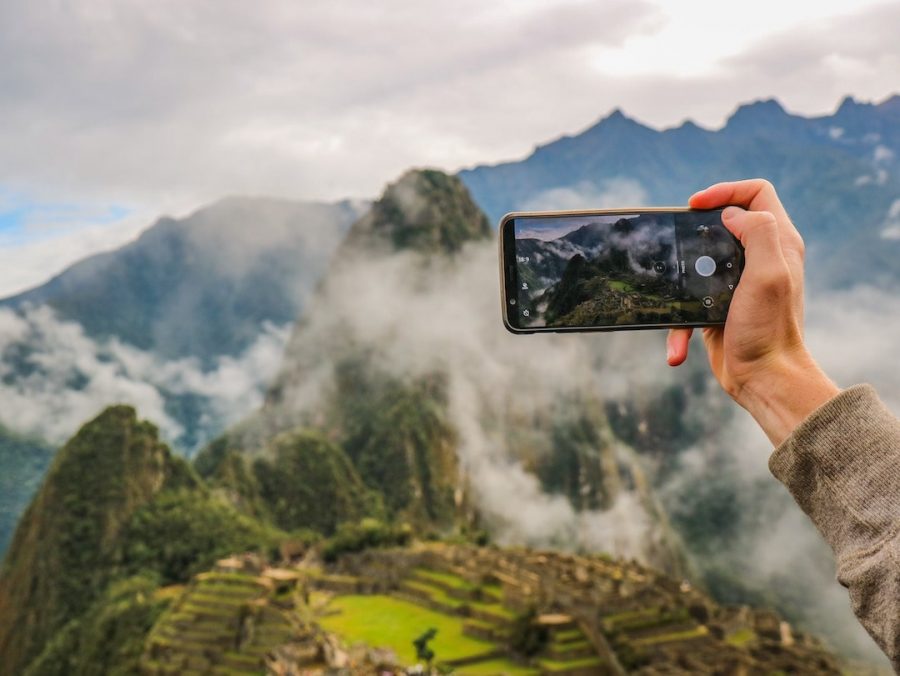
How to get to Machu Picchu
To start the memorable adventure of visiting Machu Picchu, you’ll need to get to Cusco – which can be found at a staggering altitude of 3399
Once you’ve arrived in Cusco, you will still need to make it to the gateway town of Aguas Calientes, located just a short journey away. From Aguas Calientes, you have a few options. You can either pay for a bus up to Machu Picchu, or you can take the physically demanding option of the steps which will take over an hour. The step-alternative is a challenging experience, but of course, the views of Machu Picchu are beyond worth it, and you’ll forget you ever broke a sweat.
What to do in Peru
It’s completely understandable that Machu Picchu may have initially piqued your interest, but there’s more than meets the eye in Peru!
- Make your way to the Peruvian Amazon, where the display of flora and fauna is nothing short of awe-inspiring. Plenty of local tour operators can guide you through the area, so you don’t have to face the jungle by yourself.
- Cusco isn’t just for
acclimatisation . It’s where you will find traces of fascinating Inca history, vibrant andcolourful textile markets, excellent nightlife, and unique architecture. If you want to learn more about the sacred sites of Peru, plan a day trip out to the historic Inca sites at Ollantaytambo, Chinchero, and Pisac to complete the experience. - The Colca Canyon in Peru is twice as deep as America’s Grand Canyon – so yes, it’s seriously impressive. While you’re there, you can hike the area and explore the spectacular landscapes.
- Not to be missed, the Nazca Lines are enormous geoglyphs etched in the dry, barren Peruvian desert. Various theories surround the reasons why they exist, but you’ll have to see it for yourself to make up your own mind.
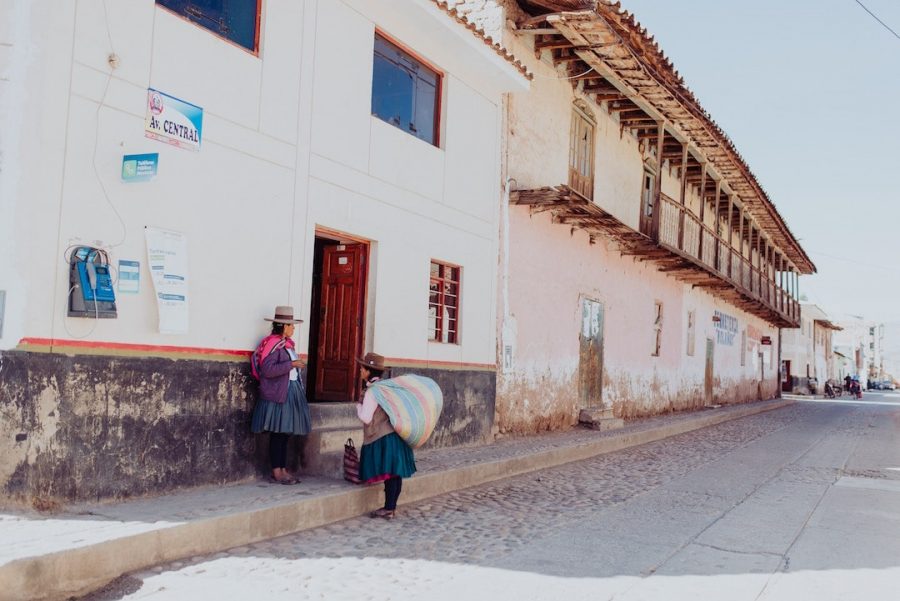
Chichen Itza
Why you need to visit Chichen Itza
You can’t visit the Yucatan region without making a stop at Chichen Itza. As a restored Yucatan Maya site, there are plenty of ways to fill your time at Chichen Itza: you can jump on a day tour, go solo and explore at your own pace, or meet with a local guide so you can learn first-hand all about the unique history. As for why it is so historically significant, the site shows traces and evidence of civilisation over hundreds of years.
The most popular site within the complex is Kukulcan’s Temple. However, the other notable spots include the Observatory which showcases the Mayans love of star-gazing and a fascination with space and the galaxy, the Sacred Cenote, the Warriors Temple, and the Jaguars Temple.
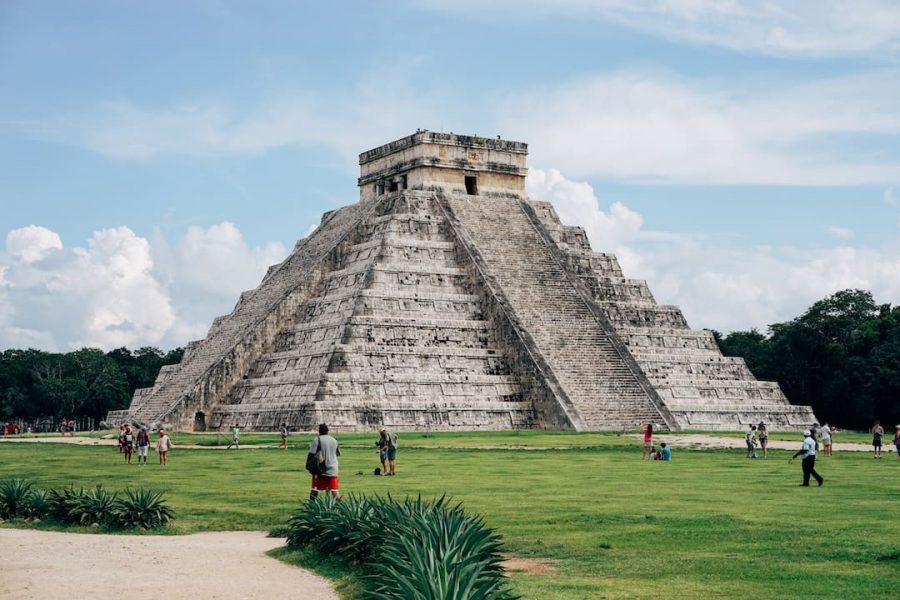
When to visit Chichen Itza
Across Mexico, the months of December through to April are when the highest number of visitors flock to the country during peak season, as these are the driest months. If you want to avoid hurricanes and increased rainfall, avoid
If you’re not bothered by an early wake-up call, the best time to visit Chichen Itza is first thing in the early morning at 8 am when it opens. By the time mid-morning rolls around, the number of crowds will increase significantly, so if you want a shot of the temples without too many people in the way, the early morning is the best time to visit. When planning your trip to Chichen Itza, be mindful that Sundays are when Mexican nationals can enter the complex for free so that it can become quite busy and crowded.
How to get to Chichen Itza
Chichen Itza can be found between Cancun and Merida, and there are plenty of routes that allow you to visit Chichen Itza without too much hassle. A local bus network departs from downtown Cancun, Playa Del Carmen, or Tulum, and will take anywhere between 2-3 hours. On the weekends, you can jump on the bus from Merida to reach Chichen Itza. When you arrive at Chichen Itza, the only way to get around is on foot.
If Chichen Itza is included in your group tour itinerary, all you’ll need to do it make sure you rock up at the departure time in the morning, and you’ll be transported there without having to worry about how to get there.
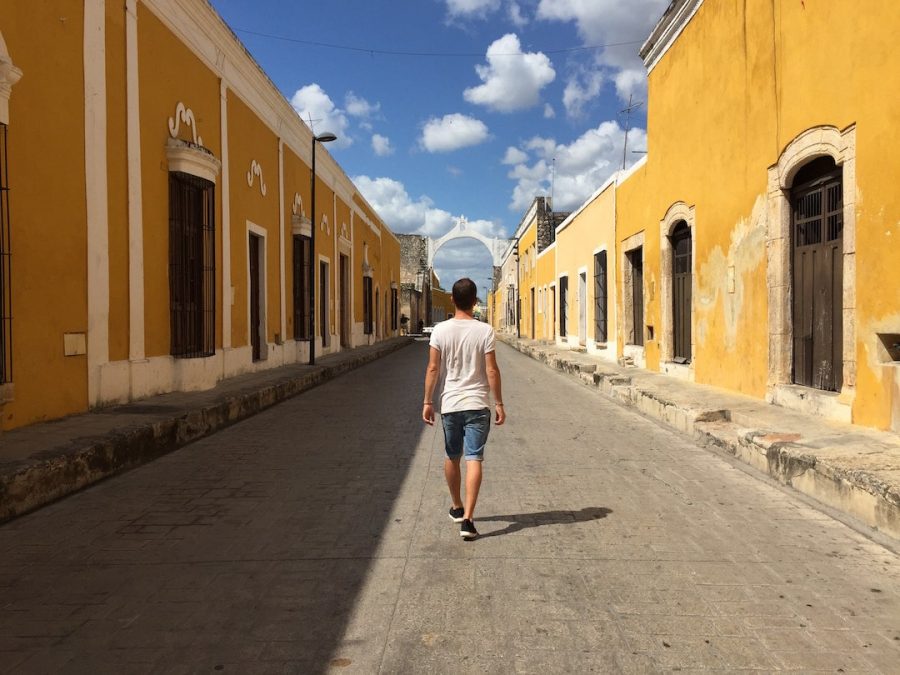
What to do in Mexico
There are so many things to experience in Mexico, and here are a few ideas to get you started on your adventure.
- Visit La Casa Azul; Frida Khalo’s childhood home-turned-museum. The experience itself offers visitors a chance to delve into the extraordinary life of Frida Khalo, and to learn about her life of work.
- If you think you know the difference between a burrito and a taco, your world is about to be turned upside down. Nothing beats eating authentic, local Mexican cuisine. Chow down on a serving of chicken and mole, taste endless dishes that boast complex
flavours , or join a local cooking class to complete the experience. - If you find yourself in Mexico in November, make sure you get involved in Dia de Muertos festivities. Celebrated at the start of November, it is believed to help the souls of deceased loved ones on their journey to the afterlife.
- Spend time lazing about at the world-class beaches of Playa del Carmen or Tulum and surround yourself with azure water, palm trees galore and powdery sand.
Have we helped you compare Machu Picchu vs Chichen Itza? Tell us in the comments which one you’ll visit next.


